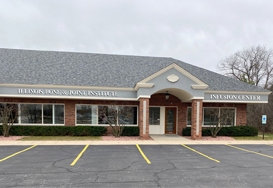
Rheumatoid arthritis (RA) doesn’t just slow you down—it can take over your life if left unmanaged. Working with specialists and staying proactive can help you reduce symptoms and regain control. As May is Arthritis Awareness Month, now is a good time to empower yourself with the knowledge and tools to manage flares, protect your joints, and improve your quality of life.
Understanding RA: More Than Just Joint Pain
RA is an autoimmune condition that causes your immune system to mistakenly attack the joints, leading to inflammation, pain, and eventual damage—particularly in the small joints of the hands, wrists, and feet, though larger joints can also be affected as the disease progresses. Without early intervention, RA can cause permanent joint deformity and loss of mobility. That’s why recognizing symptoms and seeking expert care is essential.
Managing RA Flares: Your Rheumatologist’s Role
Flares—periods of worsened symptoms—can be unpredictable and debilitating. Rheumatologists play a key role in identifying triggers, adjusting medications, and tailoring treatment plans to reduce the frequency and intensity of flares. From DMARDs (disease-modifying antirheumatic drugs) to biologics and corticosteroids, your treatment plan may evolve with your needs. Early and aggressive treatment is often the best defense against flare-related joint damage.
Achieving Remission: The Goal of Modern RA Treatment
Thanks to advancements in medicine, many people living with RA can achieve remission—a state where symptoms are minimal or absent. Your rheumatologist monitors disease activity using lab tests and imaging, making necessary adjustments to keep inflammation under control. While some patients may achieve remission, many do require long-term treatment. At IBJI we have infusion centers offering the most advanced treatments.
Protecting Joint Health: Lifestyle and Prevention Strategies
As rheumatologists, we often see the long-term effects of RA when joint damage has progressed. But with early and ongoing care, much of this damage can be prevented. Some key lifestyle strategies include:
- Low-impact exercise along with gentle stretches to maintain mobility and strength
- Anti-inflammatory diets rich in omega-3s and antioxidants
- Stress management to reduce flare frequency
- Joint protection techniques, such as adaptive tools or modified movement patterns
Take Control of RA This Awareness Month
Rheumatoid arthritis may be chronic, but suffering doesn’t have to be. Schedule a consultation with the specialists at Illinois Bone & Joint Institute to stay ahead of flares and protect your joints for the long haul. Early action is the key to a stronger, more mobile future.
About the Authors
Teresa Sosenko, MD is a board-certified, fellowship-trained rheumatologist specializing in the treatment of autoimmune disorders with a patient-centered approach to care.
Ami Kothari, MD is a board-certified rheumatologist. She provides advanced treatments to reduce joint inflammation and help control the workings of the body’s immune system.




